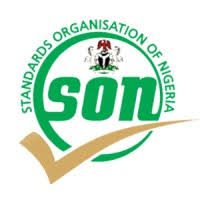
2023 in review: Zenith Bank, Access Holdings amongst most performing stocks on NGX
By Matthew Denis
The 2023 financial year was full of ups and downs with some emanating factors that affected transactions in the Nigeria Exchange market (NGX).
The key factor that affected the economy ranges from the redesign of the Naira currency by the past Governor of the Central Bank of Nigeria (CBN), Godwin Emefiele which brought untold hardship on the masses.
Another element that made the economy witness a standstill was the 2023 electioneering periods between February to April this year.
Despite these challenges, the NGX All Share Index closed the year (2023) at an all-time high of 74,773.77 points, while the market capitalization fell short of N41 trillion, closing at N40.92 trillion.
The NGX’s All-Share Index grew by 45.90 percent in 2023, and this growth was driven by some exceptional performers in the market.
The NewsDirect Business Desk was able to pencil down some of the top performing stocks on the NGX in 2023.
- 1. Transcorp Hotels Plc
Standing with head tall with a share price appreciation of 1022.9 percent, Transcorp Hotels is one of the best performing stocks in the Nigerian Exchange in 2023. The company’s share price started 2023 at N6.25 and closed 2023 at N70.18.
The company’s market cap also hit N718.8 billion at the close of 2023. The company which is a subsidiary of Transnational Corporation Plc (TRANSCORP) owns and controls Transcorp Hilton Abuja, Transcorp Hotels Calabar, and Aura by Transcorp Hotels.
The company’s fundamentals in 2023 have been exceptional as the company recorded a net income of N4.07 billion in the nine months ending September 2023, representing a year-on-year growth of 79.19 percent from the corresponding period in 2022.
The company impressively between January and September 2023, the assets grew by 2.75 percent to close at N123.8 billion.
- 2. Zenith Bank Plc
Nigeria’s leading commercial bank started the year with a share price at N25.00 but it is closing with a share price of N38.65.
Zenith Bank Plc has announced its audited results for the half-year ended 30 June 2023, recording an astounding triple-digit growth of 139 percent in gross earnings from N404.8 billion reported in H1 2022 to N967.3 billion in H1 2023. This is a clear demonstration of its resilience and strong market share despite a very challenging macroeconomic environment and persistent headwinds.
According to the bank’s audited half-year financial results presented to the Nigerian Exchange (NGX) on Monday, 11th September 2023, the triple-digit growth in the top line also spurred the bottom line as the Group recorded a 169 percent Year on Year (YoY) increase in profit before tax, growing from N130 billion in H1 2022 to N350.4 billion in H1 2023. Profit after tax also grew by triple digits, growing by 162 percent from N111.4 billion to N291.7 billion in the same period.
- Access Holdings Plc
The current share price of Access Holdings Plc (ACCESSCORP) is NGN 23.15. ACCESSCORP closed its last trading day (Friday, December 29, 2023) at 23.15 NGN per share on the Nigerian Stock Exchange (NGX). Access began the year with a share price of 8.50 NGN and has since gained 172 percent on that price valuation, ranking it 34th on the NGX in terms of year-to-date performance. Shareholders can be optimistic about ACCESSCORP knowing the stock has accrued 29 percent over the past four-week period alone —15th best on NGX.
Access Holdings is the third most traded stock on the Nigerian Stock Exchange over the past three months (Sep 29 – Dec 29, 2023). ACCESSCORP has traded a total volume of 1.64 billion shares — in 24,881 deals — valued at NGN 30.6 billion over the period, with an average of 26 million traded shares per session. A volume high of 81.5 million was achieved on November 27th, and a low of 4.21 million on November 8th, for the same period.
- Seplat Petroleum Development Co.
Seplat Petroleum Development began the year with a share price of 1,100.00 NGN and has since gained 110 percent on that price valuation.
Seplat Petroleum Development Co. is currently the sixth most valuable stock on the NGX with a market capitalisation of NGN 1.36 trillion, which is about 3.32 percent of the Nigerian Stock Exchange equity market.
- eTranzact Plc
eTranzact is Nigeria’s premier financial technology solutions provider and a leading payment and switching company.
E-Tranzact began the year with a share price of 3.50 NGN and has since gained 72.9 percent on that price valuation. ETRANZACT has traded a total volume of 120 million shares — in 1,622 deals — valued at NGN 904 million over the period, with an average of 1.91 million traded shares per session.
- United Bank for Africa (UBA) PLC
United Bank for Africa (UBA) PLC is a leading pan-African financial services group with presence in 20 African countries, France, UK, and US.
United Bank for Africa began the year with a share price of 7.60 NGN and has since gained 238 percent on that price valuation.
It is noteworthy that UBA was the most traded stock on the Nigerian Stock Exchange over the past three months (Sep 29 – Dec 29, 2023). UBA traded a total volume of 2.04 billion shares—in 25,985 deals—valued at NGN 42.3 billion over the period, with an average of 32.4 million traded shares per session
7.Transnational Corporation Plc (TRANSCORP)
The power sector is another most competitive sector in the country, the Tony Elumelu-led conglomerate has recorded one of its best years yet in the NGX, with a growth of 666.4 percent growth recorded in 2023. The company which started the year with a share price of N1.13 closed the year with a share price of N8.66.
In line with its impressive market performance, the company’s financial performance has been satisfactory. As of the nine months ending September 2023, the company recorded a net income of N22.7 billion, representing a year-on-year growth of 19.43 percent from the corresponding period in 2022.
Though, there was ownership crisis between Femi Otedola and Tony Elumelu. And it is deductible that this action may have added to the increased investors’ attraction to the group.
- MRS Oil Plc
The only energy stock that features on this list is MRS Oil Plc. The company closed 2023 with a share price of N105, up by 644.7 percent from the N14.10 it started with in 2023.
The downstream oil company which is controlled by Sayyu Dantata has recorded an impressive 2023. In 9M 2023, the company recorded a revenue of N100.9 billion, representing a 45.9 percent year-on-year growth from the same period last year.
The company’s net income of N3.44 billion during 9M 2023 was a whopping 338.5 percent year-on-year increase from the N785 million recorded in 9M 2022. However, the company’s impressive financial performance can be linked to the rise in the price of petroleum products in Nigeria this year.
- Fidelity Bank Plc
Fidelity Bank Plc is listed on the Nigerian Stock Exchange (NGX) since May 17th, 2005. Fidelity is traded on the NGX under the ticker symbol “FIDELITYBK,.”
The current share price of Fidelity Bank Plc (FIDELITYBK) is NGN 10.85. FIDELITYBK closed its last trading day (Friday, December 29, 2023) at 10.85 NGN per share on the Nigerian Stock Exchange (NGX), recording a 2.8 percent gain over its previous closing price of 10.55 NGN. Fidelity began the year with a share price of 4.35 NGN and has since gained 149 percent on that price valuation
- Chams Holding Plc
As the world is gradually shifting into the the digital age, the ICT sector, Chams Holdings Plc is another impressive performer in the NGX in 2023, with a share price growth of 795.5 percent. It started the year with a share price of N0.24, closing the year with a share price of N1.97.
Chams Holding Company, a pioneering computer software solutions provider owns Chams Switch, Chams Access, Card Centre, and Chams Mobile.
Aligning with its market performance, the company’s financial performance has also been satisfactory as it recorded a gross profit of N1.84 billion in 9M 2023, representing a year-on-year growth of 181.3 percent from the corresponding period in 2022.
Conclusion
Beyond this ranking, the NGX has a lot of work to do in capturing more companies in the stock activities especially in the mining and aviation sectors which have zero participation in stock transactions.
The expectations for 2024 is high considering the fact that the President Bola Tinubu being a business technocrat has huge task in providing enabling environment to attract more foreign investor into the country. Also the government at all levels should create an incentive for local firms to gear up their productions and service to compete favourably with others.
Finally, the NGX should also extend their coast to the fintech companies to enable them participate fully in the exchange activities.



